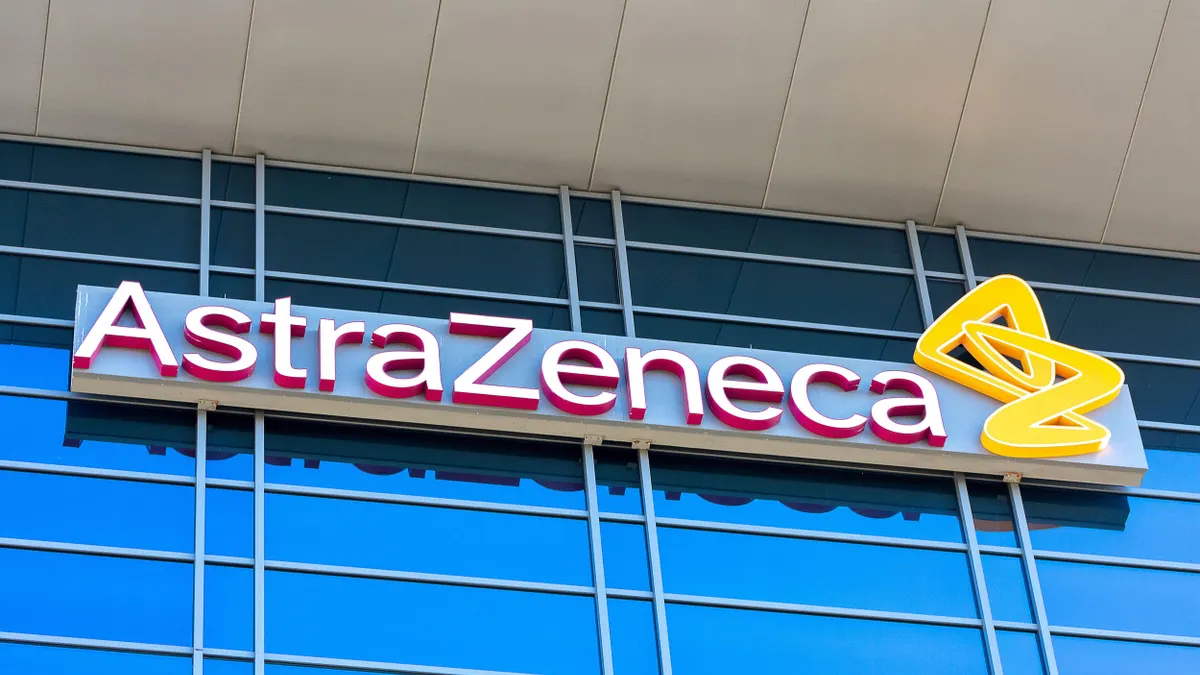A drug from AstraZeneca and Daiichi Sankyo has succeeded in a large clinical trial focused on aggressive, hard-to-treat breast cancer, opening the door to a possible approval for one of the toughest forms of the disease.
According to AstraZeneca, the antibody-drug conjugate drug known as Datroway extended overall survival by a median of 23.7 months compared to 18.7 months for trial participants given chemotherapy. Additionally, those on the drug went almost twice as long without their disease advancing. Median “progression-free survival” was 10.8 months for Datroway-treated patients versus 5.6 months in the chemo arm.
The Phase 3 study, titled TROPION-Breast02, enrolled almost 650 participants with inoperable metastatic breast cancer for whom immunotherapy was not an option for treatment. These patients’ cancers are also “triple negative,” meaning the malignant cells lack three key proteins that are often the targets for more precise medicines.
Datroway is designed to seek out a different protein, “TROP2,” expressed in multiple cancers.
“For triple negative patients, whose disease moves very progressively every day, every week, every month, [this data] is a huge hope that science is delivering for them,” Mohit Manrao, head of AstraZeneca’s U.S. oncology division, said in an interview.
Of the 323 participants given Datroway, about 63% had tumors shrink following treatment, compared to 29% of those on chemo. The risk of death was also lowered by 21% with Datroway. Overall, the experiment hit both its main goals by demonstrating a “a highly statistically significant and clinically meaningful” reduction of 43% in patients’ risk of disease progression or death, AstraZeneca said.
According to Manrao, AstraZeneca generally expected to see this level of progression-free survival, given how Datroway works and its prior performance in clinical testing. The drug is already cleared for use in patients with previously treated metastatic breast cancer that’s “HR-positive/HER2-negative.” It also secured approval this June as a treatment for adults with a certain kind of advanced lung cancer.
In this latest trial, participants given Datroway were on the treatment more than twice as long as those on chemo. Researchers observed Grade 3 or higher “treatment-related adverse events” in 33% of the drug arm and 29% of the chemo arm. Some of the most common were of which were mouth inflammation, fatigue, anemia, and abnormally low levels of certain white blood cells.
One participant in the Datroway group died from a case of interstitial lung disease that an independent committed concluded was related to the drug. AstraZeneca said this event was characterized as Grade 3 pneumonitis, and a trial investigator attributed the cause of death to disease progression.
Manrao said study results with be shared with global regulators to understand next steps to approval.
A rubber stamp from regulators would position Datroway to directly compete with Gilead’s Trodelvy, another antibody-drug conjugate that targets TROP2.
Trodelvy is already approved for use in triple-negative breast cancer patients who’ve tried at least two systemic therapies. At ESMO, researchers presented new data from a Phase 3 study that pitted Trodelvy against chemo as a “first-line” treatment. There, it proved to have a superior median progression free survival of 9.7 months compared to 6.9 months.
Leerink analysts noted Monday how the trials are “nuanced” and prevent a true definition of a “winner.” Still, they believe Datroway showed “a slightly better clinical profile” compared to Trodelvy, which “may ultimately command greater commercial share.”













